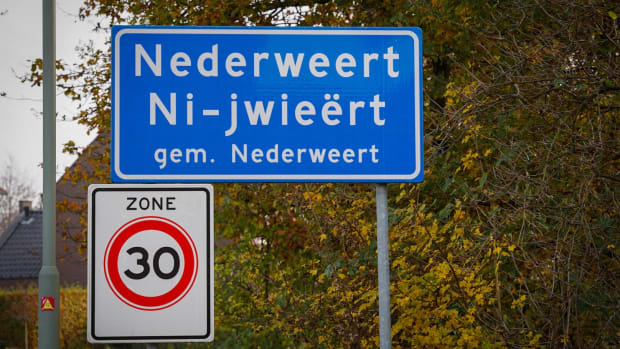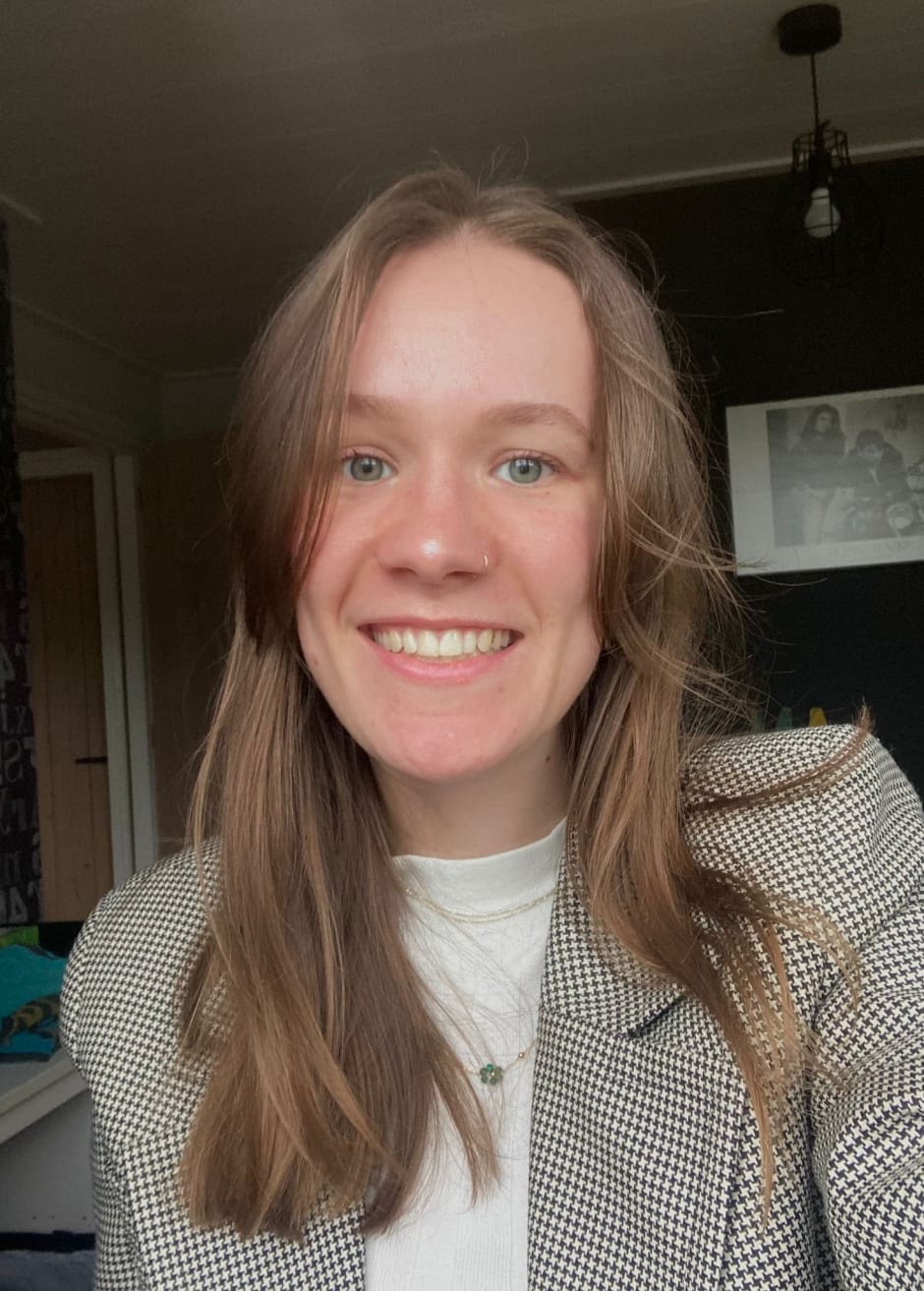
Regional language death in the Netherlands also seen at UvA: “It’s dramatic”
Regional languages are slowly dying out, says UvA linguist Arjen Versloot. More and more students at the UvA are also exchanging their regional accent for a Randstad accent, characterized by the Gooische r. There is a social norm that students who speak an accent are experiencing, also feel Mathijs Gijsen from Limburg and Sanne Nijhof from Twente who study at the UvA.
“It’s dramatic,” UvA professor of Germanic linguistics Arjen Versloot answers when asked about the state of regional languages in the Netherlands. “At eighty percent of elementary schools in the country you may be surprised if at least one child in the class still speaks a regional language.” Even at the UvA, the student or staff member who speaks with a dialect is a rarity, Versloot said.

“Absolutely,” responds the master’s student in clinical neuropsychology from Twente Sanne Nijhof when asked if she uses her Twente accent less since living in the Randstad. “Back home in Twente, I get told I talk in a preppy way. I thought, let me just talk.”
And Nijhof is not the only one: many students who come to Amsterdam from the region rarely take their regional language audibly with them, Versloot says. According to Versloot, that’s partly because you can’t be sure others speak the same regional language. “Even if someone speaks the same dialect in addition to Standard Dutch, you can’t tell from their appearance, let alone if they speak Standard Dutch to you instead of their dialect.”
According to Versloot, the decline of regional languages in the Netherlands began with the introduction of standardized education at the beginning of the twentieth century, in which Standard Dutch became dominant. Children from the region also learned to speak and write this standard language, and discovered that it helped them communicate easily with more people. “In the generation that followed, many parents switched to Standard Dutch in their upbringing, so the sphere of use of regional language declined sharply,” Versloot said. That led to fewer and fewer people speaking dialect, which not only reduced the number of speakers but also affected the language itself: grammatical and linguistic features began to disappear. “Among the generation of post-war babies, the regional languages received an additional blow, because people hardly grew up with regional languages,” Versloot says. Anno 2025, according to Versloot, even the tone color of many regional languages is disappearing.
Regional language death
The term “regional language” refers to the language spoken by someone in a particular region, including Frisian, which is also officially the second national language alongside Dutch, Versloot explains. In his publication on “regional language death,” Versloot exposes how the diversity of Dutch regional languages that was once so great is now shrinking.
Why is the disappearance of regional language seen as a negative development? Fewer different ways of speaking means less variation in grammar, pronunciation and vocabulary. Therefore, the loss of vernaculars is seen as linguistic loss by Versloot. In addition, the disappearance of regional languages is also cultural loss. Dialects, for example, are considered intangible cultural heritage by UNESCO, for example.
Instead of regional language, a ‘Randstad-oriented language’ has emerged in the Netherlands, Versloot explains. “This language is characterized, among other things, by the Gooische r, many swallowed letters at the end of the word and a rather staccato pronunciation.” This language is mostly spoken in the Randstad, but increasingly in the rest of the country as well, Versloot says.

Yet the “regional language death” does not apply to all regional languages, Versloot emphasizes. Instead, he sees hopeful signs in certain languages such as Frisian, Limburgian, Urkers and Volendams. “These regional languages have maintained a relatively strong position, partly because they represent a clear identity within their region.” In some cases, like Frisian, official recognition and educational offerings help keep the language alive. Social cohesion also plays a major role in communities such as Urk and Volendam: there, the regional language often remains the language of communication within the family and community. Indeed, Nijhof, from Twente, feels that her accent connects her more easily with other people from the East. “When people recognize my accent, you immediately have something in common. That creates bonding.”
Social pressure
That students and staff speak Standard Dutch at the university and leave their dialect behind has to do with an “invisible social pressure,” Versloot says. In the urban and academic context, there is social stratification: there is a certain status attached to the use of Standard Dutch, so speaking dialect may be perceived as less appropriate or less professional. “You can be laughed at for it,” Versloot says.

Psychobiology student Mathijs Gijsen from Limburg acknowledges the social pressure because these days, when he introduces himself to new people, he immediately says he is Limburgish. “Otherwise I immediately get questions about it. If I didn’t, some people would ask if I was Belgian. That’s not nice because I’m not.” Nevertheless, Gijsen remains steadfast about his Limburg accent. “I agreed with myself when I moved to Amsterdam not to change my accent. It’s part of my identity and I’m proud of that.”
Nijhof, the student from Twente, also faces social situations in which her accent plays a role, “but I find them amusing rather than embarrassing,” she says. For example, students notice her Twentse ‘o’ and she sometimes uses words that her fellow students don’t understand. “In lab I said ‘gesopt’, which means ‘geknoeid’ (messed up/spilled). Then I did get weird looks.”
And Nijhof also adjusts her accent depending on the social situation. During presentations and at her internship at the Amsterdam UMC, for example, she speaks less with her accent. “That comes naturally. It is important for me to articulate clearly and intelligibly; you would also do that without an accent. Especially in my field of neuropsychology, it is important that patients understand me well.”
Do you miss the dodo?
Versloot by no means blames students for speaking less regional languages - on the contrary, he understands it all too well. “Do you miss the dodo?” asks Versloot rhetorically, using this original quote from biologist Midas Dekkers to mean that you don’t necessarily regret something that is naturally extinct, either. “It is culturally and linguistically unfortunate” but according to Versloot, it is also not a disaster that people adapt to their environment; language is simply something that is constantly changing and moving with society.

